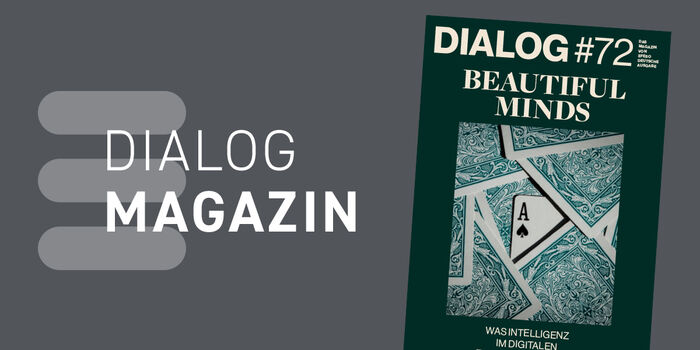In a dynamic environment marked by disruption, we can only play an active and shaping role if we are able to do many things quickly, effectively, and in parallel. That cannot be done on autopilot. Instead, we must immerse ourselves in the whirlpool of complexity. To understand interconnections and make decisions, we need to learn intensively, repeatedly adapt to new situations, actively solve problems, and think creatively. For this, we need the will to act and the ability to withstand stress and uncertainty. Above all, however, we need ever greater cognitive performance or, to put it simply, ever greater intelligence.
Ironically, it was not the view of our changing world that prompted both science and business to increasingly engage with human intelligence (HI), but rather the rapid rise of artificial intelligence (AI). On the one hand,
in order to understand the internal processes, potentials, and risks of AI, we need a sharper picture of HI and of intelligence itself. On the other hand, the output quality of AI strongly depends on the input quality of HI and on a smart and effective design and governance of the many interfaces between humans and machines.
Human intelligence and collaboration within HI/AI systems are therefore critical bottlenecks that cannot be offset by data volumes or computing power. Put differently: we need approaches to maximize the capacity and effectiveness of both HI and AI and to combine their specific strengths in order to increase the overall cognitive performance of organizations.
And finally, there are also parameters beyond pure intelligence that determine whether we arrive at good and sustainable decisions.
From this arises a range of questions we must address: what is the relationship between intelligence and factors such as intuition and empathy? What does it mean for business models and competitive strategies when AI is unlimited but available at marginal cost? How must we shape the interplay between biological and artificial intelligence in industrial environments? How do we define responsibility and decision-making in a process- and automation-driven world? Are there fundamental limits to the scalability of AI, and should there be ethical boundaries as well? How can we best prepare organizations for a transformation that is accelerating further and further? How can we foster creativity and non-linear thinking, which only humans are capable of?
It would be presumptuous to believe that these questions can be answered conclusively. But it would be irresponsible to hope that we can avoid them. In this issue of DIALOGUE, we want to examine the phenomenon of intelligence from as many different perspectives as possible – and we have found some inspiring sources of inspiration.

BEAUTIFUL MINDS
What intelligence means in the digital age
DIALOGUE #72 READ NOW›